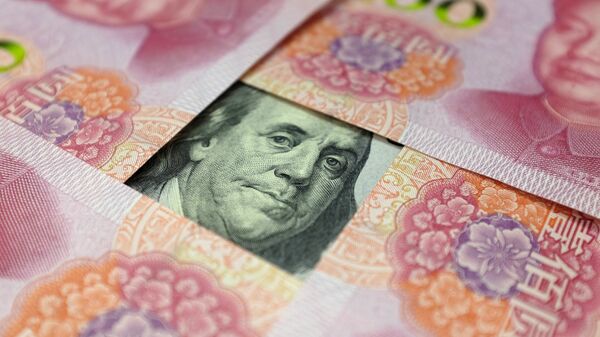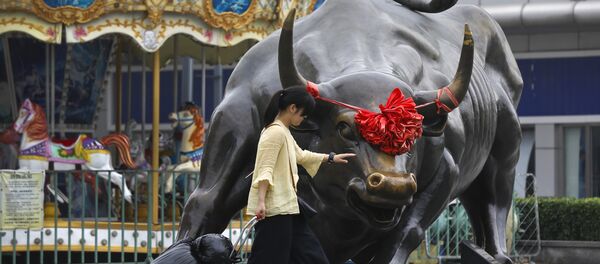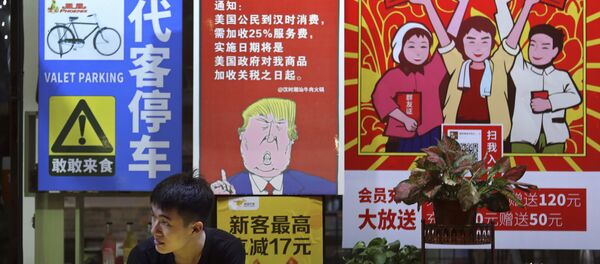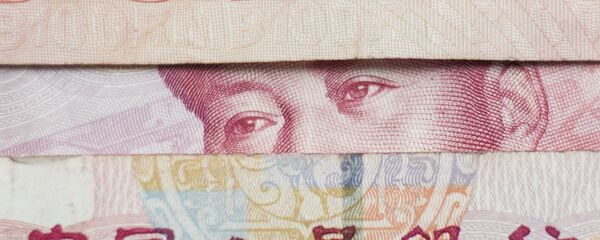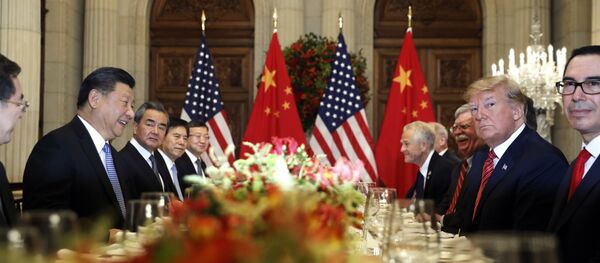At the same time, the White House appeared to disagree on whom would bear the costs of the newly-imposed US tariffs, with President Donald Trump dismissing his Economic Adviser Larry Kudlow's claim that American consumers and companies would eventually suffer from the move. At the same time, Beijing emphasised that it is determined to emerge victorious amid its trade war with Washington.
Sputnik has discussed the impact of the tit-for-tat measures amid negotiations to ink a trade agreement with Marc Ostwald, global strategist at ADM Investor Services.
Sputnik: China has responded to Trump's new tariffs by targeting $60 billion in US exports. According to the Chinese Finance Ministry, 25, 20, and 10 percent import duties for different groups of US goods will come into effect on 1 June. What could be the consequences for American business? What could be the long-term global effect of the move?
READ MORE: Trump Says He Hasn't Decided to Tariff Remaining $325 Billion in Chinese Goods
Obviously, China imports a lot less from the US (just $120 Bln) than the US imports from China ($520 Bln), so it also has a habit of creating problems for US companies doing business in China, this takes various forms – e.g., heightened quality inspections at customs, or simply delaying inspections.
Sputnik: The decision comes after US President Donald Trump on Friday decided to impose 25 percent tariffs on $200 billion worth of Chinese goods, also warning that Beijing should strike a deal or the situation would be "far worse" for China. What does the US president mean? How "far worse" can the situation become for China?
Selling its US Treasuries (as opposed to stopping new investments in USTs, which it has already being doing for a few years on a net basis) is not an option, as it does as much if not more harm to China, particularly as it has used USTs as collateral for lending, for instance on Belt & Road projects. Ultimately this is a Thucydides trap, i.e. it’s about which of the two countries will lead the world economy in its next major phase of economic development, see this article from my colleague Lauren Judd.
Sputnik: White House Economic Adviser Larry Kudlow said earlier that American companies would pay for the tariffs on Chinese imports as well as on Chinese enterprises imposed by the Trump administration. Trump has denied the claim. Who will eventually pay these tariffs, China or US customers?
Marc Ostwald: Differentiated – mostly US producers and consumers, above all where there is no alternative producer.
Sputnik: The People's Bank of China said on Tuesday that it had decided to devalue the yuan's exchange rate in relation to the US dollar by 0.6 percent — how will the market react?
Marc Ostwald: That is not quite correct, the PBOC "fixed" the CNY lower today, a lot of pressure has emerged since Monday last week, and there is always a lot of chatter in these circumstances about China "devaluing" – it is not really in their interest because a) it creates inflation for China’s consumers, and b) it creates problems for many EM countries that China has lent to in USD, and who will inevitable struggle to repay their debts.
READ MORE: US Stocks Dive by 617 Points as China Imposes New Tit-for-Tat Tariffs
I take the view that they will not pursue devaluation as a policy, and that they will defend the 7.0 level vs. the USD vigorously as they have done before.
Sputnik: The Dow Jones Industrial Index fell more than 600 points on Monday, one of its largest drops since early January. How do you expect the situation to develop?
The views and opinions expressed in this article are solely those of the speaker and do not necessarily reflect Sputnik's position.
